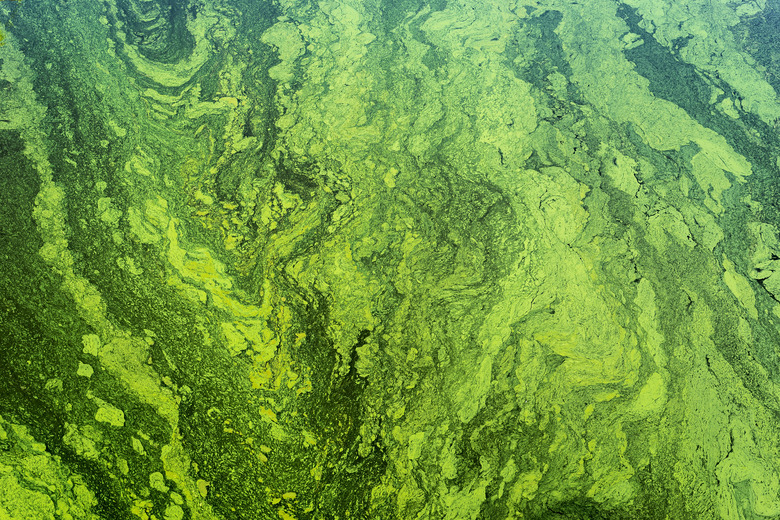Role Of Algae In Agriculture
Algae are a large and diverse group of lower plants, including distantly related groups of micro-organisms that can perform photosynthesis, in which they capture energy from sunlight. Algae range from large complex marine forms called seaweed to minute unicellular picoplankton. Algae growth is often viewed as a problem, as it grows within backyard swimming pools and in-home fish tanks. On the other hand, algae play an important role in agriculture where they are used as biofertilizer and soil stabilizers.
Reducing Agricultural Runoff
Reducing Agricultural Runoff
Algae, particularly the seaweeds, are used as fertilizers, resulting in less nitrogen and phosphorous runoff than results from the use of livestock manure. This, in turn, increases the quality of water flowing into rivers and oceans, according to a May 2010 article in "Agricultural Research."
Fertilizer
Fertilizer
As reported in the May 2010 "Agricultural Research" article, Walter Mulbry of the Agricultural Research Service conducted a study of corn and cucumber seedlings grown in commercial fertilizer and seedlings grown in potting mixes containing algae, finding that the seedlings performed better with the algae mixes as compared to commercial fertilizer.
Food Supplements
Food Supplements
Algae are cultivated around the world and used as human food supplements. Algae can produce a clean and carbon-neutral food. Algae can be grown on abandoned lands and arid and desert lands with minimal demands for fresh water. A article published in 2011 in "Algae Industry Magazine" states that one thousand-acre chlorella farm could produce 10,000 tons of protein a year.
Fodder for Milk Cattle and Hens
Fodder for Milk Cattle and Hens
Algae are also used for feeding livestock and hens. Seaweeds are an important source of iodine. Iodine levels in milk depend on what the cow producing the milk has been fed. Feeding milk cattle with seaweeds can increase the quantity of iodine in milk, according to Fuzhou Wonderful Biological Technology. Egg-laying rates in hens are also increased by algae feed additives.
Cite This Article
MLA
Mittal, Priyanka. "Role Of Algae In Agriculture" sciencing.com, https://www.sciencing.com/role-algae-agriculture-8617202/. 22 November 2019.
APA
Mittal, Priyanka. (2019, November 22). Role Of Algae In Agriculture. sciencing.com. Retrieved from https://www.sciencing.com/role-algae-agriculture-8617202/
Chicago
Mittal, Priyanka. Role Of Algae In Agriculture last modified March 24, 2022. https://www.sciencing.com/role-algae-agriculture-8617202/
